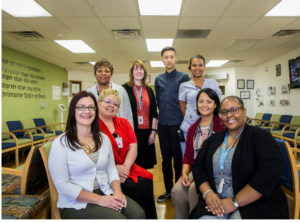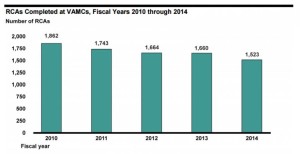- Why Major Hospitals Are Losing Money By The Millions (forbes.com)
According to the Harvard Business Review, several big-name hospitals reported significant declines and, in some cases, net losses to their FY 2016 operating margins...How did some of the biggest brands in care delivery lose this much money? The problem isn’t declining revenue...Part Of The Problem Is Rooted In The Past...From the late 19th century to the early 20th, hospitals were places the sick went to die. For practically everyone else, healthcare was delivered by house call. With the introduction of general anesthesia and the discovery of powerful antibiotics, medical care began moving from people’s homes to inpatient facilities. And by the 1950s, some 6,000 hospitals had sprouted throughout the country...By the time Medicare rolled out in 1965, healthcare consumed just 5% of the Gross Domestic Product. Today, that number is 18%...Hospitals have contributed to the cost hike in recent decades by: (1) purchasing redundant, expensive medical equipment and generating excess demand, (2) hiring highly paid specialists to perform ever-more complex procedures with diminishing value, rather than right-sizing their work forces, and (3) tolerating massive inefficiencies in care delivery...Most hospital leaders acknowledge the need to course correct, but very few have been able to deliver care that’s significantly more efficient or cost-effective than before. Instead, hospitals in most communities have focused on reducing and eliminating competition. As a result, a recent study found that 90% of large U.S. cities were “highly concentrated for hospitals,” allowing those that remain to increase their market power and prices...
- Medical errors are up at VA hospitals, but they’re actually doing less to figure out why (washingtonpost.com)
Hospitals across the country are under growing pressure to reduce preventable medical mistakes, the errors that can cause real harm and even death to patients…Department of Veterans Affairs, which runs a massive system of hospitals and clinics that cared for 5.8 million veterans last year, is doing less, not more, to identify what went wrong to make sure it doesn’t happen again.
- UNLV takes over eight patient clinics (businesspress.vegas)
The UNLV School of Medicine launched its first class July 17 but the community outreach for providing medical care is already underway and will expand in the future...UNLV has taken over eight patient clinics that the University of Nevada, Reno School of Medicine operated. That includes a multispecialty pediatric center, a family and sports medicine clinic, behavioral health and counseling. UNR had 24 offices and clinical spaces and UNLV will create eight patient clinics, many around University Medical Center and others in the northeast valley...The clinical practices are vital to the medical school by providing a training ground for students and residents who’ve already graduated, in addition to the revenue they generate to operate the school...The clinics, which generate about $70 million a year, are running at a deficit of about $6 million to $7 million a year. The school is making organizational changes to reduce that deficit and ultimately have a surplus with local management under UNLV and other operational changes that will bring more patients and revenue into the operation…
- How medical education will change in Northern Nevada (rgj.com)
...University of Nevada Medical School...Currently operating as a split school in Reno and Las Vegas, medical education and care will change dramatically in the state thanks to the 2015 Legislature,...
- New center for kids with sickle cell disease aims to fill void in Southern Nevada (reviewjournal.com)

Danielle Bello, left, Angela Berg, Kimberly Moffatt-Brazile, Sue Waltermeyer, Jordan Lipio, Monike Richardson, Dr. Nik Abdul Rashid and Tamiko Brooks
Children in the Las Vegas Valley who have sickle cell disease soon will be able to visit a one-stop hub for medical care and social services to help them cope with the painful, sometimes debilitating blood disorder...The new Sickle Cell Treatment Center will open at the Children’s Specialty Center of Nevada, 3121 S. Maryland Parkway, by the end of October, according to Dr. Nik Abdul Rashid, director of the sickle cell center...The center will provide patients with access to a multidisciplinary team, including doctors, a social worker and a clinical research associate, who can help with everything from psychological assessments to communicating with a child’s school about the impact of the disease, Rashid said...the new center will help ensure kids with sickle cell disease receive adequate care while also giving parents the information and resources they need to be the best caregivers they can be...



